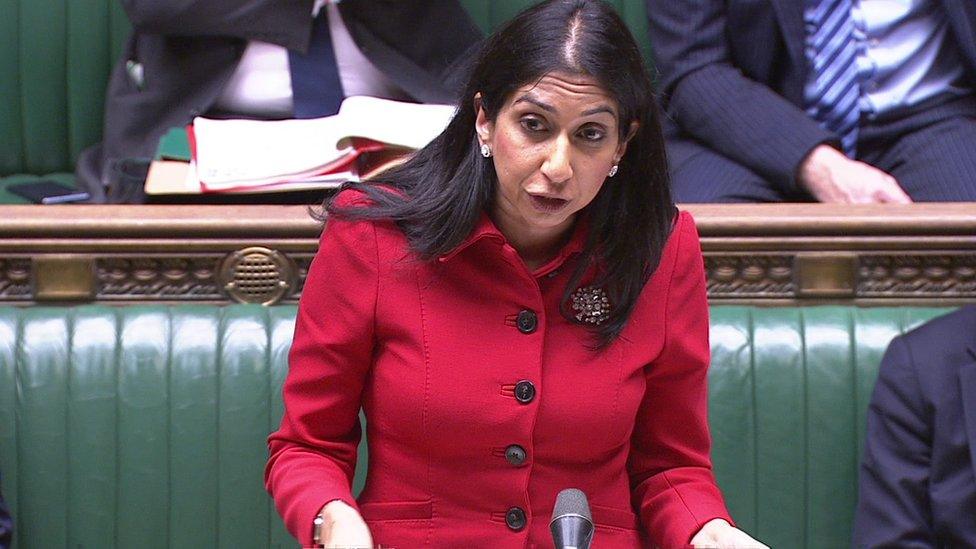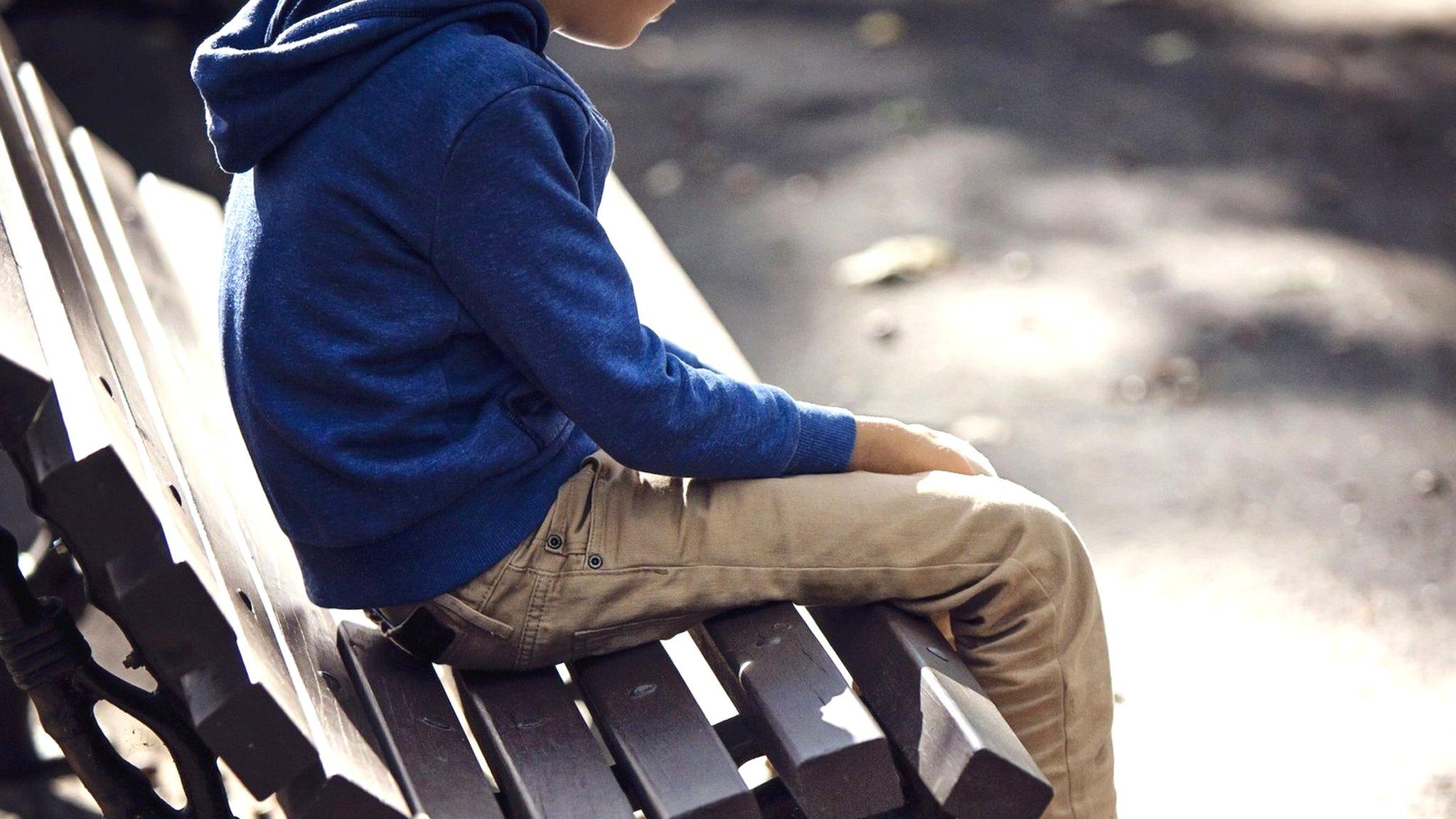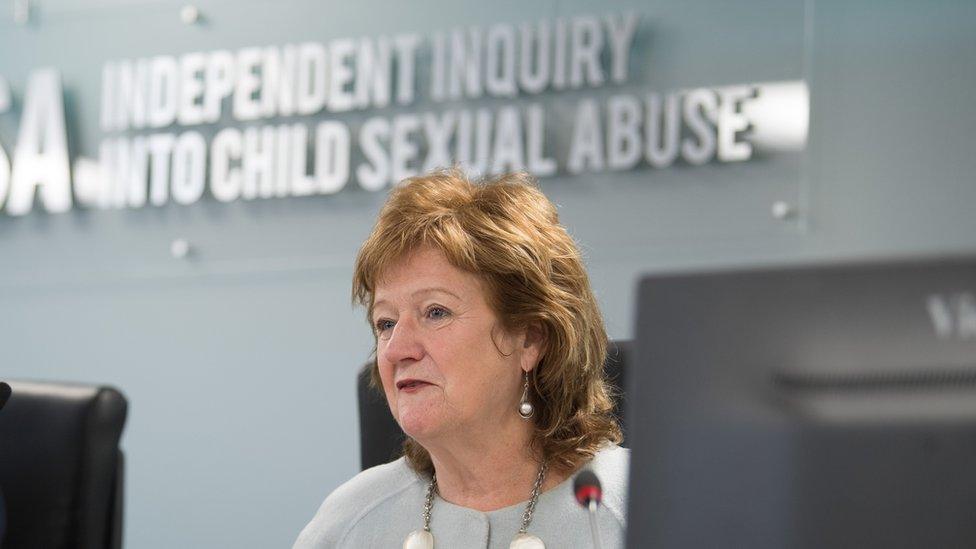'Redress scheme' announced for child sexual abuse victims
- Published

Suella Braverman spoke of a "problem of enormous scale and of devastating consequences"
Victims of child sexual abuse will be supported through a government "redress scheme", Suella Braverman has announced.
Speaking in response to the independent inquiry into child sexual abuse (IICSA) report, the home secretary said it was a "landmark day" for victims.
The IICSA report called the nature and scale of abuse in England and Wales "horrific and deeply disturbing".
The inquiry began in 2015 and drew on evidence from 7,000 victims.
Ms Braverman said she had been "moved" by the personal testimonies.
"This is a real problem of enormous scale and of devastating consequences and today's response to that inquiry report must mark a step change for victims and survivors," she said.
"That's why I'm announcing a new redress scheme to ensure that victims and survivors can secure some finality, some acknowledgement of what they've been through and, hopefully, some closure."
There will be a consultation with victims and the charities representing them to find out who the scheme should support and how.
It is not yet clear who will receive compensation, how much will be paid or how this will be funded.
The IICSA previously called for a redress scheme for victims, and recommended that those applying for compensation should have experienced abuse "where there is a clear connection to state or non-state institutions".
Asked by shadow home secretary Yvette Cooper for a timetable, Ms Braverman said she did "not want to give victims and survivors the false impression that implementing these big commitments will happen overnight".
Ms Braverman said the government had accepted the need to act on 19 out of the IICSA report's 20 recommendations.
These include improving "the victims' experience of the criminal justice system, the criminal injuries compensation scheme, workforce regulation, access to records, consistent and compatible data and communications on the scale and nature of child sexual abuse".
In response, Ms Cooper said Ms Braverman saying the government accepted the need to act on the recommendations was not "the same as accepting the recommendations" or the same as setting out what action would be taken.
Speaking earlier about her plan to make it illegal not to report signs of child sexual abuse for those working with children, Ms Braverman said a "culture change" was needed and announced there would be a call for evidence on how best to implement this rule.
The public consultation will run for 12 weeks from Monday.
Ms Cooper said Labour had called for that change a decade ago and criticised the home secretary for setting up a call for evidence, telling the Commons "the inquiry gathered lots of evidence".
The IICSA report recommended this change to the law when its final report was published in October.
Chairwoman Prof Alexis Jay said the inquiry had heard "time and time again how allegations of abuse were ignored, victims were blamed and institutions prioritised their reputations over the protection of children".
Liberal Democrats' home affairs spokesman Alistair Carmichael welcomed the move when it was first announced by the government last month, but said criminals would "continue to evade justice" unless court backlogs were cut and community policing restored.
Anna Edmundson, Head of Policy at the NSPCC, said the proposals from the IICSA were "welcome" but "needed to go further and faster".
She said: "It is disappointing that the Inquiry's clear recommendation that all child victims of sexual abuse should be guaranteed specialist, accredited therapeutic support is absent from the concrete commitments made by the government."
The IICSA was set up in the wake of the Jimmy Savile scandal, due to concerns about inadequate safeguarding within organisations responsible for child safety.
Prof Jay described child sexual abuse as "an ever-growing problem exacerbated by current and future threat of the internet".
- Published3 April 2023

- Published20 October 2022
